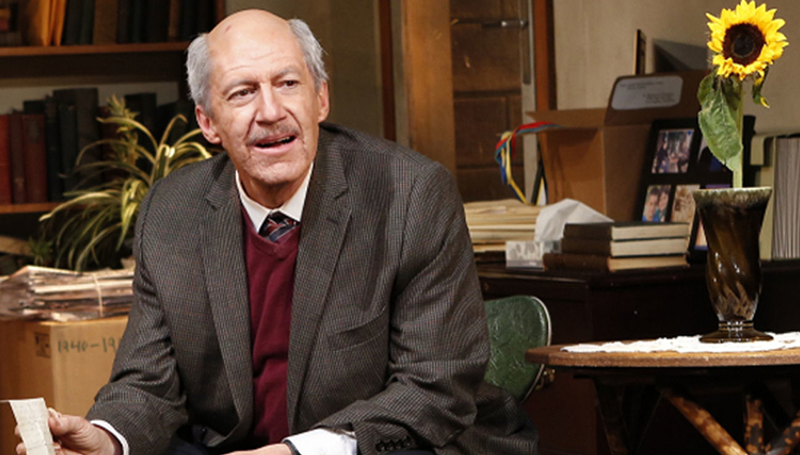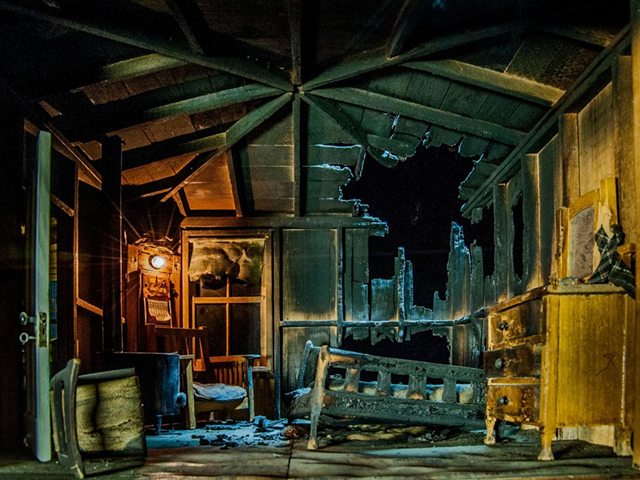Tom Dugan grew up with the stories of his father, a decorated World War II veteran, and the horrors he came across as a young man.
“I always wanted to honor his memory, his participation,” says Dugan via a phone call from his home in southern California. “The thought came across — ‘What am I going to do with this information?’ ”
He found the answer in Simon Wiesenthal, from whom Dugan molded a one-man show called Wiesenthal: Nazi Hunter.
Wiesenthal, a Holocaust survivor who spent time in five different concentration camps, dedicated his post-war life to pursuing information on fugitive Nazi war criminals. In his lifetime — he died in 2005 — he came to be known as the “Nazi Hunter.” Among many others, his leads helped capture Adolf Eichmann and the policemen who arrested Anne Frank.
Wiesenthal tells that story. But it also goes beyond. As Dugan notes, this isn’t a history lesson.
“The audience will probably be surprised at the light touch it has and the character of Wiesenthal is actually a whimsical man,” Dugan says. “During the ‘30s — before World War II — Wiesenthal was a stand-up comedian. Later in his life, he was able to mix the dark lessons that needed to be learned from the Holocaust with an understanding of keeping your audience awake.”
That detail to Wiesenthal’s persona is one that Dugan capitalized on. The 90-minute play hones in on Wiesenthal tracking down his last Nazi. The audience, which acts as the final group of students in his Jewish Documentation Center in Vienna, is taken through a series of phone calls.
Since its premiere in 2009, Dugan has performed the play 474 times. Currently, it’s on a yearlong 150-performance U.S. tour, which includes a one-day stop at the Aronoff Center for the Arts on March 31. After each, Dugan also hosts a talk-back discussion.
Just prior to Cincinnati, Dugan brought his performance to Pittsburgh, where part of the proceeds went toward the city’s Tree of Life synagogue, the site of a mass shooting last October where 11 people were killed and seven were injured; it marked the deadliest attack on the Jewish community in the U.S.
Ten years ago, when Wiesenthal first premiered, Dugan says that audiences’ perceptions of the play were that, as a society, we were past that kind of intolerance. But, sadly, he says it isn’t old news.
“Wiesenthal understood that the human savage will never go away. It is forever looking for opportunities to raise its ugly head again,” Dugan says. “And that’s what’s happening now. In my neighborhood of Woodland Hills, California — which is about as liberal as a place as you can find — there was a Nazi propaganda poster. Just (the other day).”
He adds, “So if I can (give) help in any way I can to the Tree of Life synagogue — which has suffered such devastation — it just makes me feel like I’m doing something, you know?”
In Pittsburgh, Dugan also did a free performance for hundreds of high school students, which he says are the most important demographic to see Wiesenthal. He believes these stories need to be passed onto the younger generation — just like Dugan's father and Wiesenthal did before him.
Wiesenthal: Nazi Hunter will come to the Aronoff Center (650 Walnut St.) March 31. More info: cincinnatiarts.org.







